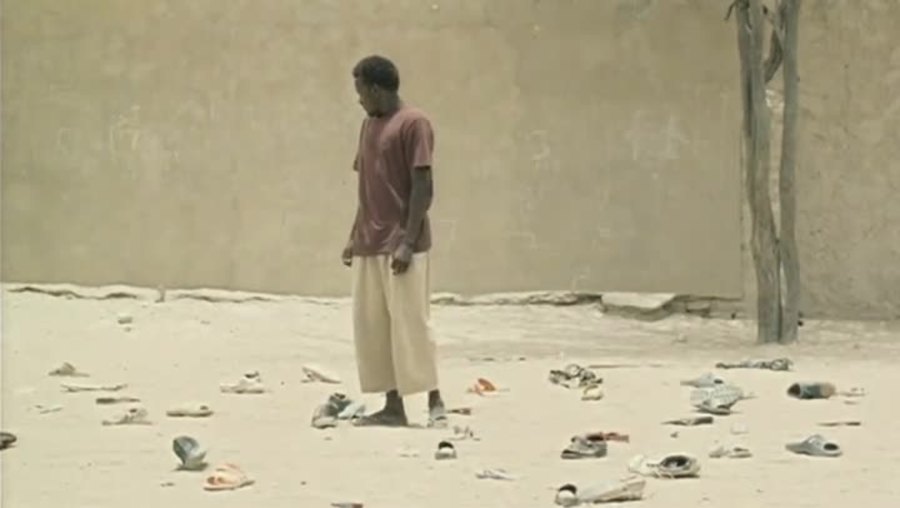|
The war-torn lands of Chad, which have suffered through decades of civil war and unrest, serve as the perfect backdrop for Mahamat Saleh Haroun's Dry Season, a film that wrestles with issues related to restorative justice through its intimate formal and narrative construction. Astutely re-contextualizing retributive justice through a deeply empathetic lens, Dry Season examines how individual-based altruism can lead to collective progress, revealing in its denouement the positive-sum externalities placed on larger society as a whole when the anger subsides, and forgiveness takes root. The complexities and pain intrinsic to war and mass social conflict which reverberates for generations are displayed through a quiet yet deeply effective structure, stewing with tension and it deconstructs the aesthetics of violence. Violence against the other is easy, but when there is a level of familiarity its true destructive impact becomes more cognitively clear. The paternal relationship which unfolds is extremely well crafted, oscillating seamlessly between moments of tension and the threat of violence to extremely tender moments that display the evolving, symbiotic components of this subversive relationship between a young man and the man who killed his father during the civil war. One of the best films dealing with notions of vengeance and justice I’ve seen in recent memory, coming from a filmmaker who unfortunately has experienced large scale conflict for far too long, which certainly explains this astute, mature vision of forgiveness.
0 Comments
Leave a Reply. |
AuthorLove of all things cinema brought me here. Archives
June 2023
|

 RSS Feed
RSS Feed
